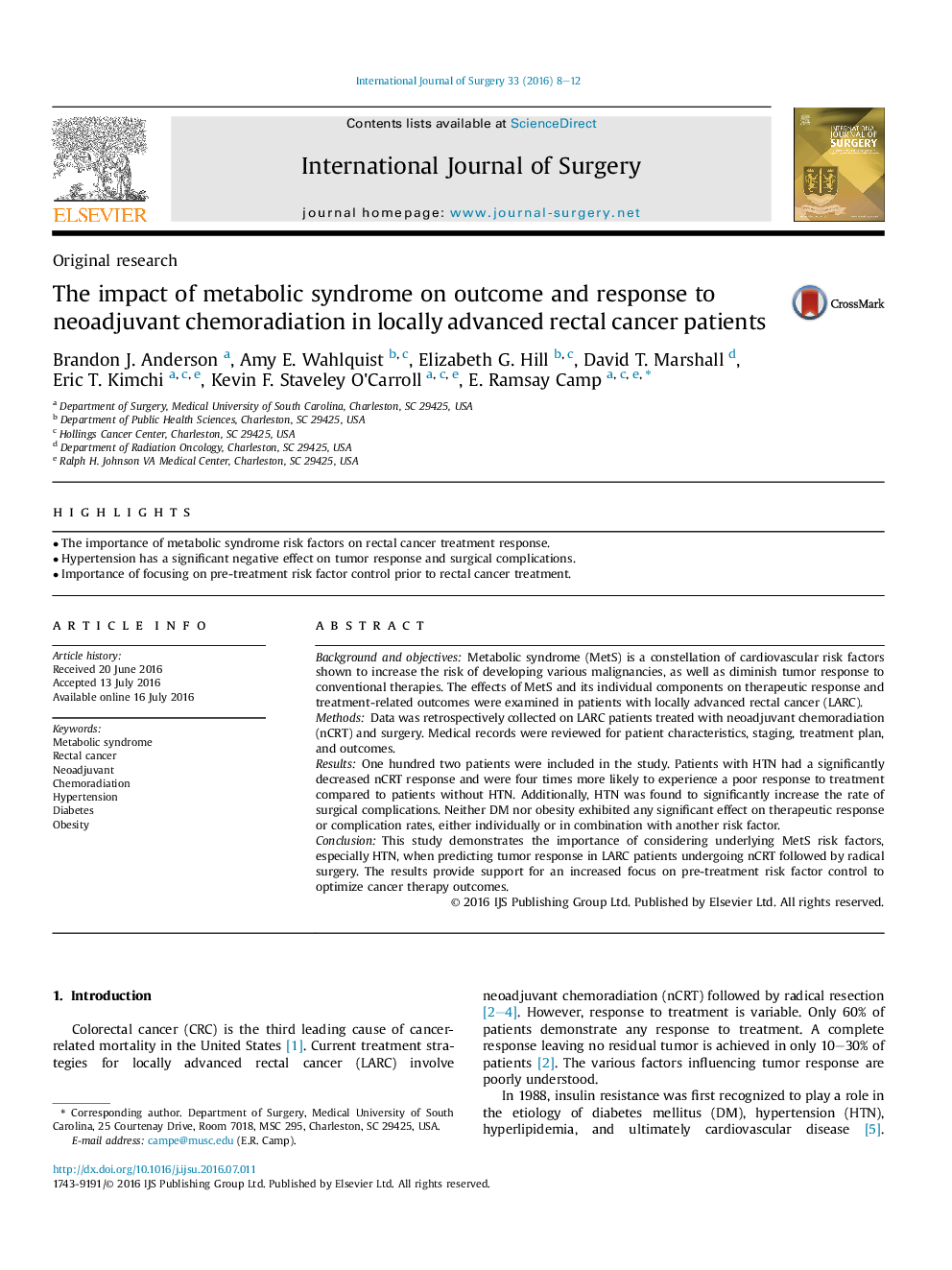| کد مقاله | کد نشریه | سال انتشار | مقاله انگلیسی | نسخه تمام متن |
|---|---|---|---|---|
| 4285299 | 1611953 | 2016 | 5 صفحه PDF | دانلود رایگان |
• The importance of metabolic syndrome risk factors on rectal cancer treatment response.
• Hypertension has a significant negative effect on tumor response and surgical complications.
• Importance of focusing on pre-treatment risk factor control prior to rectal cancer treatment.
Background and objectivesMetabolic syndrome (MetS) is a constellation of cardiovascular risk factors shown to increase the risk of developing various malignancies, as well as diminish tumor response to conventional therapies. The effects of MetS and its individual components on therapeutic response and treatment-related outcomes were examined in patients with locally advanced rectal cancer (LARC).MethodsData was retrospectively collected on LARC patients treated with neoadjuvant chemoradiation (nCRT) and surgery. Medical records were reviewed for patient characteristics, staging, treatment plan, and outcomes.ResultsOne hundred two patients were included in the study. Patients with HTN had a significantly decreased nCRT response and were four times more likely to experience a poor response to treatment compared to patients without HTN. Additionally, HTN was found to significantly increase the rate of surgical complications. Neither DM nor obesity exhibited any significant effect on therapeutic response or complication rates, either individually or in combination with another risk factor.ConclusionThis study demonstrates the importance of considering underlying MetS risk factors, especially HTN, when predicting tumor response in LARC patients undergoing nCRT followed by radical surgery. The results provide support for an increased focus on pre-treatment risk factor control to optimize cancer therapy outcomes.
Journal: International Journal of Surgery - Volume 33, Part A, September 2016, Pages 8–12
